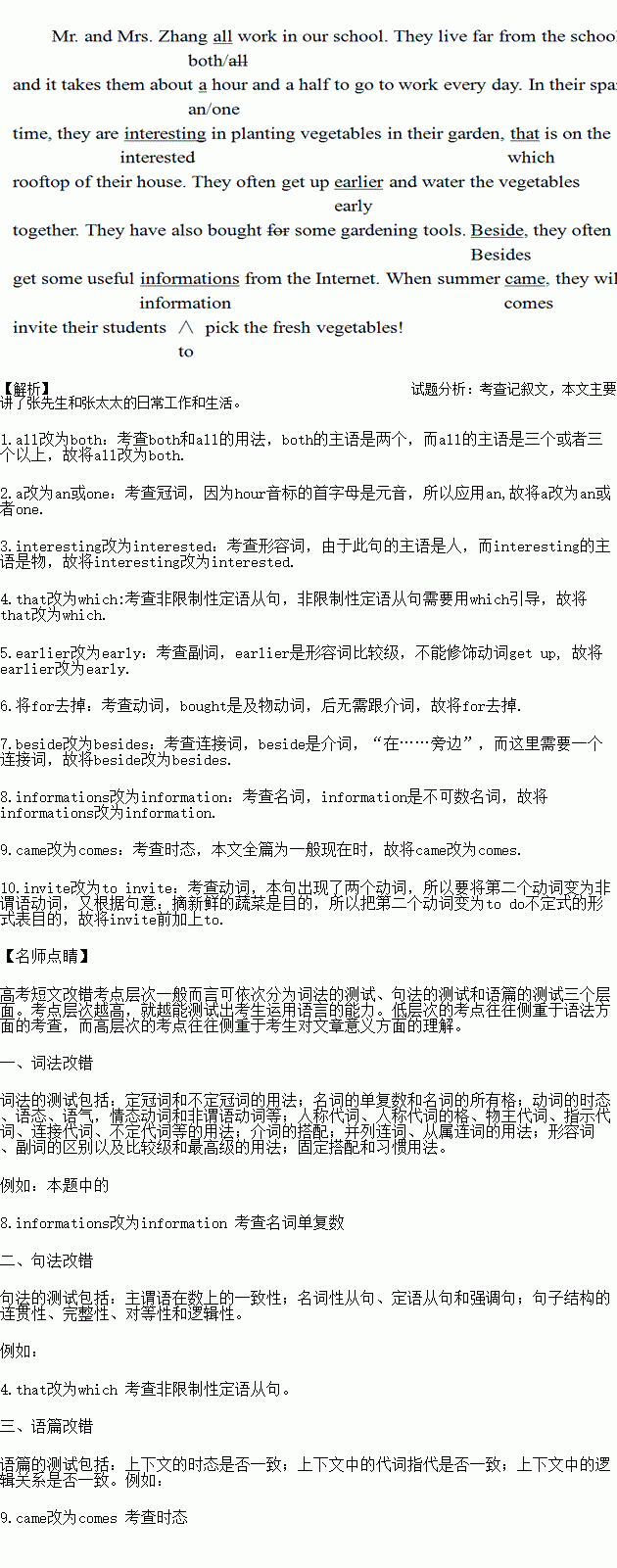题目内容
假定英语课上老师要求同桌之间交换修改作文,请你修改你同桌写的以下作文。文中共有10处语言错误,每句中最多有两处;每处错误仅涉及一个单词的增加、删除或修改。
增加:在缺词处加一个漏字符号(∧),并在其下面写出该加的词。
删除:把多余的词用斜线(\)划掉。
修改:在错的词下划一横线,并在该词下面写出修改的词。
注意:1.每处错误及其修改均仅限一词;
2.只允许修改10处,多者(从第11处起)不计分。
Mr. and Mrs.Zhang all work in our school.They live far from the school, and it takes them about a hour and a half to go to work every day. In their spare time, they are interesting in planting vegetables in their garden, that is on the rooftop of their house. They often get up earlier and water the vegetables together. They have also bought for some gardening tools. Beside, they often get some useful informations from the internet. When summer came, they will invite their students pick the vegetables!
练习册系列答案
相关题目


 trip. Do you want to experience the local culture or just have fun on those sandy beaches?2.
trip. Do you want to experience the local culture or just have fun on those sandy beaches?2.